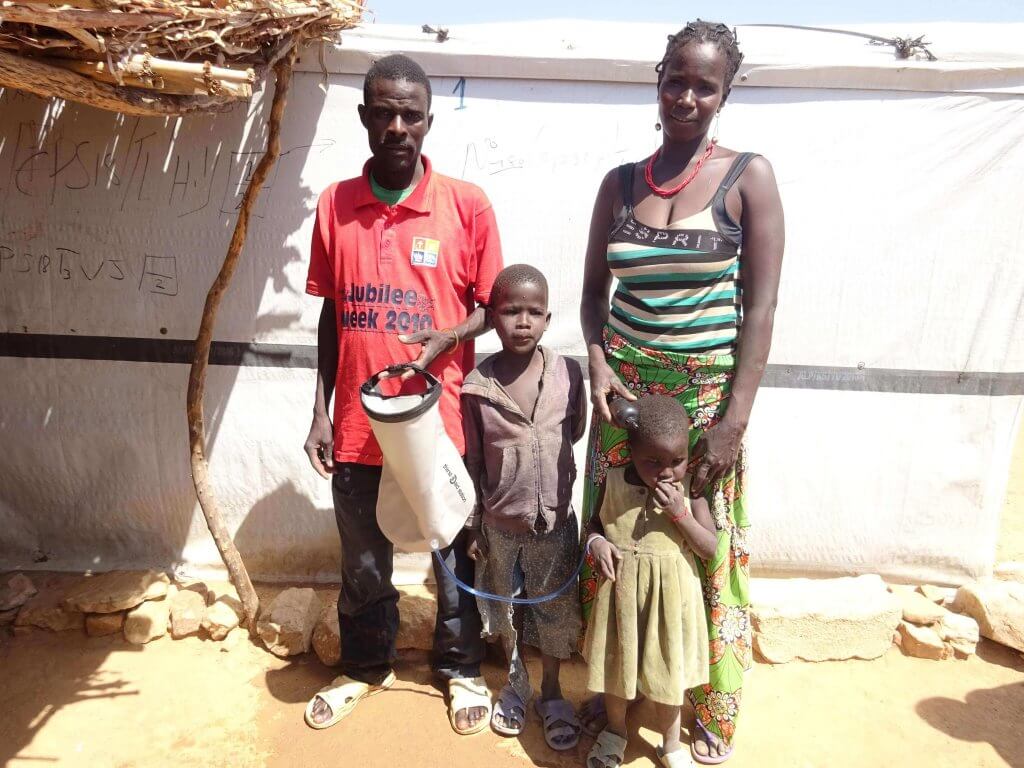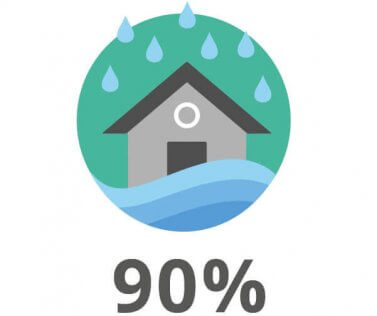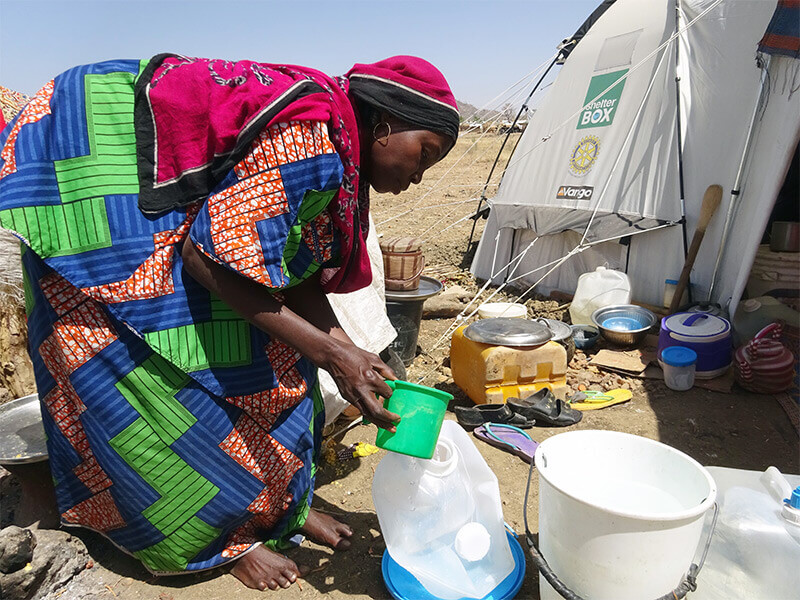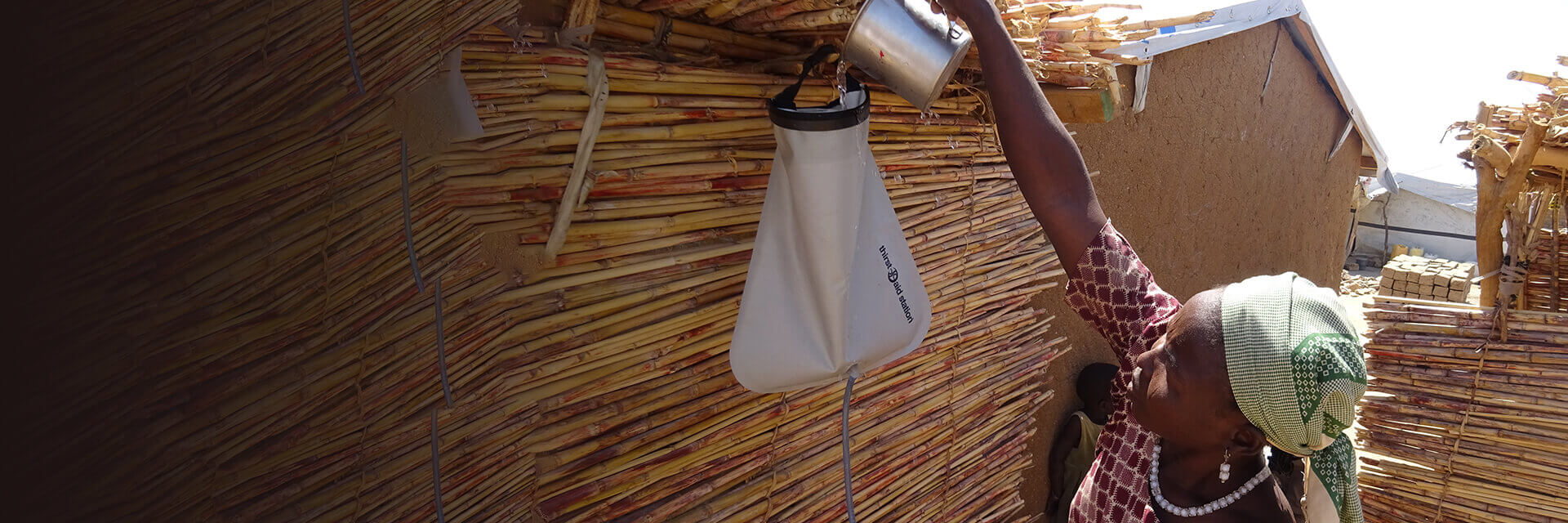Water, just like shelter, is a human right. Whoever you are, wherever you are – you are entitled to clean, safe water.
When disasters devastate whole communities and force families far from home, it can be hard to ensure access to clean water.
Families often find themselves in inhospitable areas or overcrowded camps where finding safe water is a daily struggle.
By providing families with water containers and water filters, we can make safe drinking water one less thing to worry about.
TSHAMAYA'S STORY

Tshamaya lives in Minawao refugee camp, Cameroon.
In 2012, his whole family were forced to flee their home in Nigeria in search of a safer place to call home. Five years on, Minawao refugee camp has become their hometown.
Their lives would have been much easier if they hadn’t all become ill. On their arrival at the camp, the family started suffering from stomach aches, caused by drinking unsafe water. But they didn’t have a choice – it was a matter of drinking dirty water or no water at all.
Using the water filter he received, Tshamaya was able to produce safe drinking water for his family. Tshamaya says:
Since we started using the filter that we received, nobody complained again of stomach ache.
Key stats

of the world's refugees do not have access to safe drinking water

of all natural disasters are water-related (UNISDR)

people do not have safely managed drinking water services (UNICEF)
OUR AID: WATER FILTERS
When families are unable to access clean water, water filters enable them to produce safe drinking water.
The filters can remove viruses, bacteria and pathogens that can be found within contaminated water, as well as chemicals, heavy metals and faecal matter.
A water filter can turn up to 1000 litres of unsafe water into clean drinking water – that’s enough clean water for a family of four for a month.
Watch this video to find out how our water filters work.
By working with disaster-affected families, we’ve learned that it’s important to provide water carriers along with water filters.
This makes sure families have a place to store the purified water, so it can be kept clean and safe to drink.
In the Philippines, our collapsible water carriers were particularly welcomed by women, who told us they were light and easy to carry.
Sometimes, families even use the collapsed carriers as bowls to eat from or to store food.

TAKE A CLOSER LOOK
Why do communities struggle to access clean water after a disaster
Whether it’s a cyclone, flooding or conflict, disasters can cause huge amounts of destruction and damage – and clean water is often compromised. Hand pumps break and local water sources get filled with debris, dirt or even chemicals.
How can disaster-affected families produce safe drinking water?
There are three main methods to do this: disinfection, sedimentation and filtration.
Disinfection uses chemicals, boiling or sunlight to rid water of bacteria. Sedimentation allows dirt to fall to the bottom of a water container over time. Filtration physically removes dirt by passing water through a material such as ceramic or sand.
We provide water filters because they are the most reliable and safest way to produce clean water.
Do all ShelterBox responses involve water filters and carriers?
No, they don’t. Every response is different, so the decision to distribute these is based on the needs of the affected families.
How long do water filters and carriers last?
If kept in their original packaging between 10°C and 30°C, a water carrier can last up to ten years. A water filter reaches the end of its lifespan after treating 1000 litres of water.
Stay in the know...
Sign up to our mailing list to hear more about the impact of our water filters, carriers and other essential aid items.


